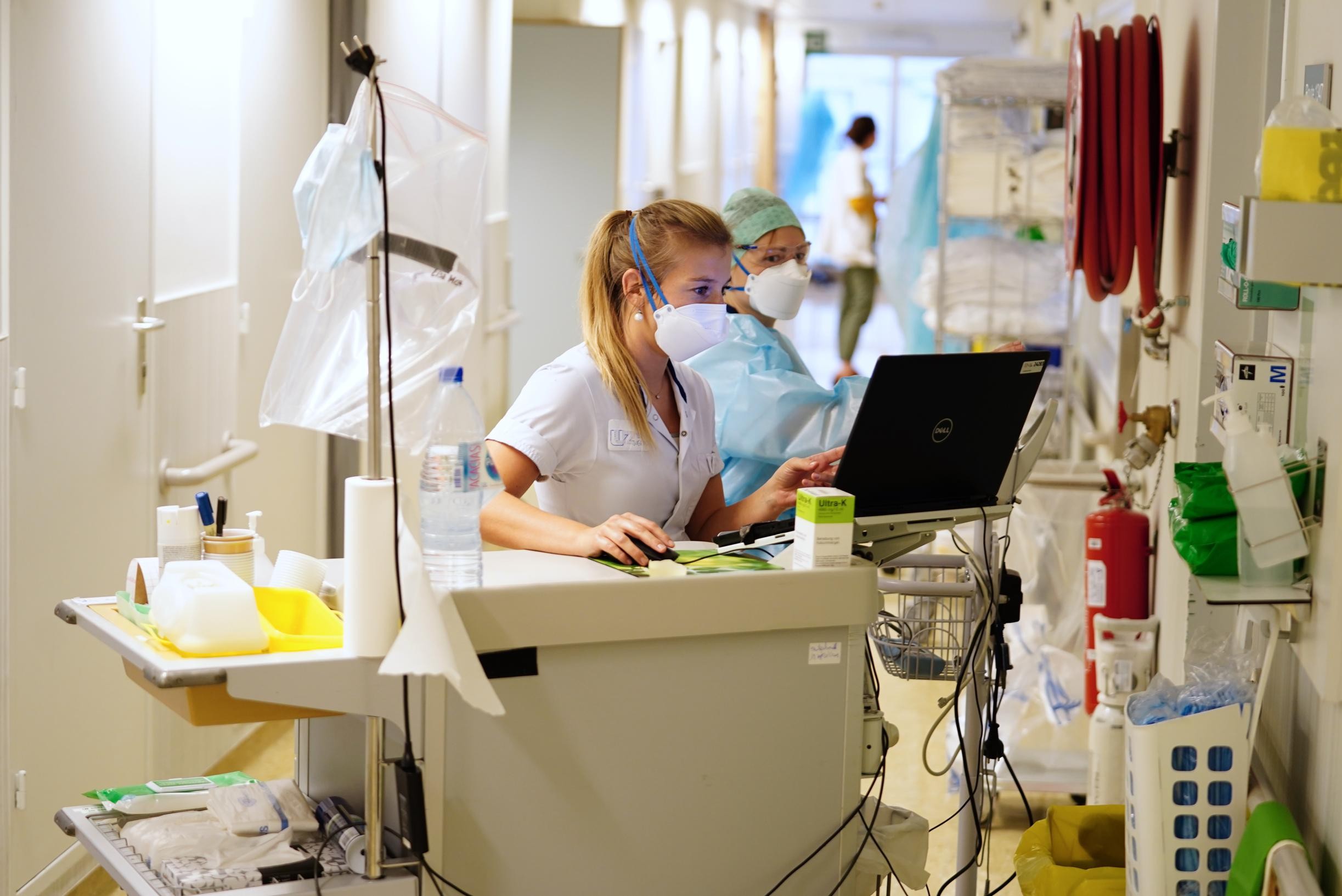On Thursday, CEOs and medical directors of Antwerp hospitals met. The mood was one of concern. “But there is also resignation: here we go again, we’ll solve it again?”, says Kristiaan Deckers, medical director of the Antwerp GZA.
“Postponing care is just not necessary. Our capacity of 25% beds for covid in the intensive care department is now completely full. We’re even a little bit about it because we helped a neighboring hospital in trouble. However, we already had to phase out beds in geriatrics.”
Loss of personnel
“The alarm bells are going off. The concern is very great due to the strong increase in patients”, Jan Flament, CEO of Hospital Geel, agrees. “Thanks to the vaccine, the corridors are not full of corona patients, but the vaccines seem to be losing strength. A third vaccine makes perfect sense.”
Flament points to a lot of staff loss: “We have had an extra complete nursing ward down. Many of them are women. They especially appear to care for the children who are sick or in quarantine. Loss of more than a month or a year also seriously peaks, due to burnouts and the like. Add to that the significant outflow due to an aging population and the recent extension of the nursing training and you have a perfect storm.”
“We have not yet had to postpone any concern, but there is the fear that we will have to do so due to absences. That is very high for nursing staff. It’s over,” Deckers said.
Guy Hans (UZA) also sees staff drop out. “They also become infected outside the hospital, through contacts or children who bring it from school, for example. The viral load is often very high. Although a vaccine shortens the infectious period in which they cannot work.”
A second issue is exponential growth, with the law of large numbers. “If you have enough infected patients, you will still get a lot of patients, despite the vaccines,” says Hans. “Certainly those who have underlying problems and the elderly. It is a vulnerable situation.”
All vaccinated
“The profile of our intensive patients?”, says Deckers. “They are now all vaccinated with breakthrough infections. Relatively young people aged 55 to 60, quite a few with immune problems. But we also see several seriously ill younger people, aged 30 to 35. So the question is whether the vaccines still work as well.”
Less crowds at AZ Klina in Brasschaat, with about twenty covid patients, including six in the intensive care department. “The situation has been stable for the past fourteen days,” said spokeswoman Joanne De Roeck. “We should not delay care for the time being, but if the numbers increase, we may have to open a second department. Staff loss? We also see a lot of quarantines of children of staff. We call on our people to be careful with contacts. They do. Even before the cancellation, several people thanked for the thanks edition for the care of Night of the Proms.”
UZA should not postpone care yet either. “But it’s puzzling and sliding, and what in the near future? The curve is still rising and not yet bending. And what if we reach a plateau that continues for a while?”
Hans is critical about phasing out the measures. “Could we not have prevented this by taking more time between relaxations? We knew that there was a much more contagious variant and a lot of people – such as the children – still without a vaccine. It remains to be seen whether the tightening will help.”
Reserved covid beds?
What about keeping hospital beds free for corona patients after UZ Gent said it would no longer do that? Hans is basically behind a buffer. “But it is not the case that large numbers of beds remain open. You want a certain reserve, so that hospitals can share the burden in solidarity. That system has already proven its worth.”
“Ethically it is extremely difficult to leave a bed empty for a covid patient,” Deckers argues. “If there is an urgent problem, we will solve it. We are not going to refuse to offer solutions for any covid patients that are yet to come.”
Goedele Beckers (medical director AZ Turnhout): “Where we initially left empty beds, up to half a department, that is no longer the case anywhere. We simply agree to scale up and down as necessary. It is also busy in our hospital and we have scaled up to phase 1A, where 25% of the beds are for covid care. But we are well prepared for a possible higher phase with more beds.”
– .


